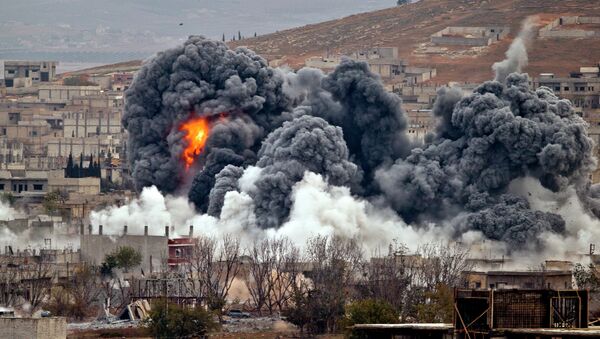The lion’s share of these explosives fell in Syria and Iraq, according to an analysis by the Council on Foreign Relations (CFR), with both nations sustaining over 12,000 bombs each. Currently the US is leading an international coalition of forces against Daesh in Iraq and Syria, carrying out air operations to stop jihadists.
"As President Obama enters the final weeks of his presidency, there will be ample assessments of his foreign military approach, which has focused on reducing US ground combat troops (with the notable exception of the Afghanistan surge), supporting local security partners, and authorizing the expansive use of air power." the CFR report read. "Whether this strategy 'works'—i.e. reduces the threat posed by extremists operating from those countries and improves overall security and governance on the ground—is highly contested."
Some 79 percent of bombs used against Daesh were dropped in Syria, a total of 24,287, though some have questioned the reported numbers as multiple bombs that could constitute a single airstrike.
Despite a campaign promise to end US involvement in the conflict in Afghanistan, Obama approved a surge of troops in the country, which sustained 1,337 US bombs in 2016, nearly 400 more than the previous year. Currently, there are 8,400 American troops in Afghanistan, more than Obama envisioned would be left, according to his deployment slowdown plans.
Libya suffered a fate similar to other East African and Middle Eastern countries, with some 500 bombs dropped on a nation that has not had a stable government since the assassination of former Prime Minister Muammar Gaddafi in 2011.
Yemen saw 58 American bombs explode on its soil this year, up from 34 in 2014. An estimated 14 were dropped in Somalia, and Pakistan saw the fewest bombs, only receiving three.




